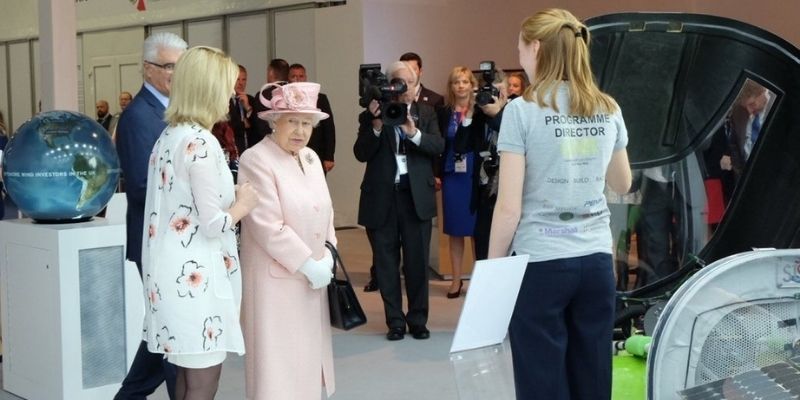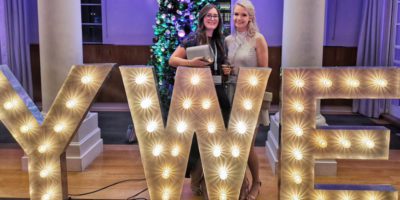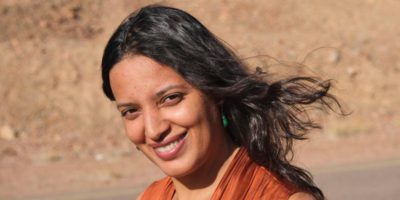Aurelia Hibbert is a freelance strategic energy and sustainability consultant. Aurelia worked as a strategic advisor for the Future Energy team at Aurecon, in Australia, until the pandemic hit and she came back to the UK. When she was studying at the University of Cambridge, Aurelia took a year out to run the university’s Eco Racing team so members could take part in the World Solar Challenge in Australia.
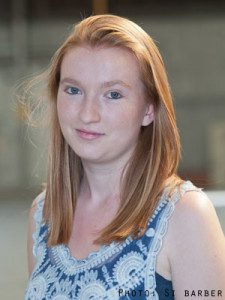
“…given the current climate crisis, people who work in this area are usually very keen to get more people involved as we genuinely believe there is a crisis, and the more people we can get to work on addressing it the better chance humanity has of overcoming the issues we face. This may sound dramatic, but it generally means we are happy to offer advice of how to get involved…”
From Cambridge to Sydney
My engineering career started when I went to study engineering at the University of Cambridge. The course included a broad foundation for two years and then I specialised in structural, civil and environmental engineering.
While I was studying, I joined the Cambridge University Eco Racing Team and took a year out from my studies to run the team full time. We designed and built a solar car, which we then drove over 2,000km across the Australian Outback in the World Solar Challenge 2015. The team was also fortunate enough to be able to meet Her Majety the Queen and Prince Phillip at the International Festival for Business in Liverpool in 2016.
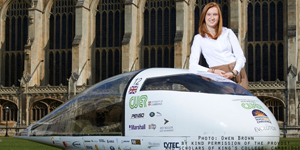
In early 2019, my partner and I moved to Australia. This was something I had been hoping to do after visiting Australia a few times during my degree.
In hindsight, understanding the carbon cost of flying, it is crazy to me that I ever thought that going there so regularly was acceptable! My partner had spent a year abroad during his degree and his self-determination really fuelled my desire to live abroad. As a pair of recently-graduated engineers, we were able to get a special visa which made the decision quite easy.
Moving into the energy sector
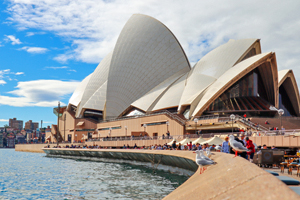
Clearly, I was able to assuage any major doubts he had about hiring me, as I started on a part-time contract with the Future Energy team at Aurecon about three weeks later, and within a month I was working full-time.
This was a fantastic role for me and although I had not worked in energy before, my broad engineering education made it possible for me to hit the ground running and learn really quickly. The team worked with clients to address their major energy risks and opportunities, which meant we got to work on a lot of interesting and innovative projects.
I think the project I most enjoyed was a Hydrogen for Transport research piece we did for the Australian Federal Government, which was used as an input to the National Hydrogen Strategy. Having co-authored this report, I was thrilled that it was able to provide a direct influence on the emerging hydrogen economy in Australia.
I also relished the opportunity to work in a small, close-knit team with so many sector experts. From wind farm acquisitions to the development of grid-scale batteries, we had someone for everything, and I got to work on such an array of technologies and styles of project.
Coming home
After 16 months, and about six months into the COVID-19 pandemic, our visas were coming to an end and it seemed right to be on the same side of the world as our families. As a result, we left our jobs and took a trip halfway around Australia before returning to the UK. We were very fortunate that the guidelines in place for the pandemic situation in Australia allowed us to do this before we came back.
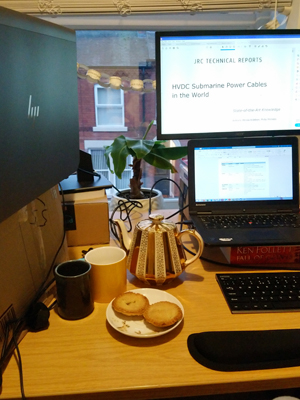
Going freelance – exciting and challenging at the same time
Freelancing has been a new concept for me and there have been many challenges. First was how to work for companies in Australia from the UK.
Fortunately, I was able to find a flexible umbrella company that was able to create a framework to allow this. Working through an umbrella company gave me the confidence that I needed with regards to invoicing, tax, and contracts so that I could focus on getting and doing the work.
Not being required to learn about all this before I could start working was a great enabler and I was also able to sort out my professional insurance through the company without major upfront costs. I would recommend considering this to anyone looking to dip their toe in the contracting pool (but of course be aware of the costs and figure out what works best for you).
Beyond the admin, the workflow is complicated too. I am very fortunate to have strong networks in Australia and the UK, which gave me plenty of avenues to explore for potential work.
While my Australian network is in the energy sector, in the UK I am more involved with people in the built environment and sustainability. This is fantastic for me as I can explore a range of work and develop different skills and knowledge banks.
Of course, I have peaks and troughs, but I am fortunate that I can handle a part-time workload and still pay my bills.
The world feels a bit smaller if you are bold enough to reach beyond your four walls
Being in Australia for the first nine months of 2020, we weren’t heavily impacted by COVID-19 at first. We were all working from home but being a company with a flexible working policy already, Aurecon, and particularly our team, were well placed to just keep going. Getting used to this has also helped me to be able to transition to working for my Australian clients in the UK as we all got used to remote working before I moved.
Back in the UK, it is a bit different. I would have been working from home anyway due to working for myself but reconnecting with my network here and being able to find new work opportunities has been harder than it would be if I could visit people.
My current plan is just to keep enough work coming in so that I am still around to take on new opportunities when I am able to connect with new people in real life towards the end of this year, at which point I will hopefully be able to be more selective about the work I take on.
I do think that in some ways ‘zoom-life’ has opened up a few opportunities too. It certainly makes the world feel a bit smaller if you are bold enough to reach beyond your four walls.
I have recently joined the Work on Climate community and have been able to connect with people all over the world to share ideas. This feels more natural now that we are mostly based online anyway.
Innovations giving hope for the future
Particular emerging energy technologies that appear to be living up to their hype so far are grid-scale batteries and their role in supporting the transition to renewable energy generation, and green hydrogen for the displacement of fossil fuels. It is good to see the commercial development of both of these in several countries and the mobilisation of significant funding for these and other technologies will help to address the hurdles for commercialisation that any new technologies will face.
Other than energy technologies, I do really feel the tide has turned in 2020 for climate action. Through my time in Australia, I certainly became more informed and passionate about it and I see it more and more in organisations and countries. Of course, we have a long way to go but I think there is real momentum around general education and action.
Complex problems, many solutions
Environmental problem solving doesn’t have one solution. Having worked with several different clients on setting net-zero targets, it is clear that a range of tools is needed to address even this fairly narrow range of climate action targets.
By engaging a wealth of diverse people in the solution finding, it helps to understand the problem in different ways. Since the challenge is bigger than we can really comprehend individually, it is no wonder that different people see it in different ways.
By surrounding ourselves with a diversity of people, whether it be their gender identity, race, educational background, type of personality or other attributes that differentiate them, we collectively have a better chance of finding an optimised solution to a problem through each taking different approaches. It’s like mounting an attack from multiple angles to find the best entry point – this is how we can collectively come up with solutions to the wide range of climate issues that we face now and will continue to do so for the rest of our working lives.
Finding your route into energy and sustainability careers
If there are people looking to get into energy and/or sustainability, and I hope there are plenty, there are a few things to know to start with.
Firstly, it is a big area so don’t worry if it feels overwhelming! Energy and sustainability are not inextricably linked but often sustainability comes back to resources and energy, so I have found that doing them together makes sense for me.
I think that when you want to contribute to a sector, the best thing to start with is understanding your key skills and passions. For example, you don’t need to be an engineer (or even a STEM person). There are great moves in sustainability being made by the creative industries, just look at the URGE Collective for some fantastic examples.
Knowing your key skills and passions, you can then identify the way in which you can best contribute to the sector. That will help you to narrow down the type of job/company you are looking for.
I would also say that given the current climate crisis, people who work in this area are usually very keen to get more people involved as we genuinely believe there is a crisis, and the more people we can get to work on addressing it the better chance humanity has of overcoming the issues we face. This may sound dramatic, but it generally means we are happy to offer advice on how to get involved.
A great starting point, if you are action-oriented (which we need to be), is to join the Work on Climate Community that I mentioned earlier – it is a great place for learning, sharing ideas, finding co-founders, job opportunities and much more. They even have a system for people working in other areas to volunteer part-time with climate-focused organisations in order to get some experience in the industry or contribute to it alongside their other work.
Looking to the future
I am currently in the process of expanding my client base with a role of higher responsibility, which is exciting for the range of work I will hopefully soon be undertaking.
I am also expecting to start a project in the next few weeks which takes me more towards sustainability in the built environment, rather than energy. I am looking forward to getting back into embodied energy, UK construction practices and working with old colleagues.
I think that in the long term I would like to find a team that I can be part of for two-three days a week, in the UK, as I am aware that I am still early in my career and I think this would offer me structured professional development and access to larger projects that I am unlikely to ‘win’ as a single person (and of course some steady work).
This would allow me to still keep across the Australian and UK markets by maintaining a few of my existing clients and would also give me the flexibility to work on other initiatives I am involved in, such as the Cambridge University Engineers’ Association.
I suppose at this point in my career, taking a year or so to figure out which direction I am going is a luxury that not many people get. With companies opening up to remote working and sustainability climbing up everyone’s (or nearly everyone’s) agenda, I think this is a great time to be giving this a go, which can’t be said for many things in the middle of a pandemic!

